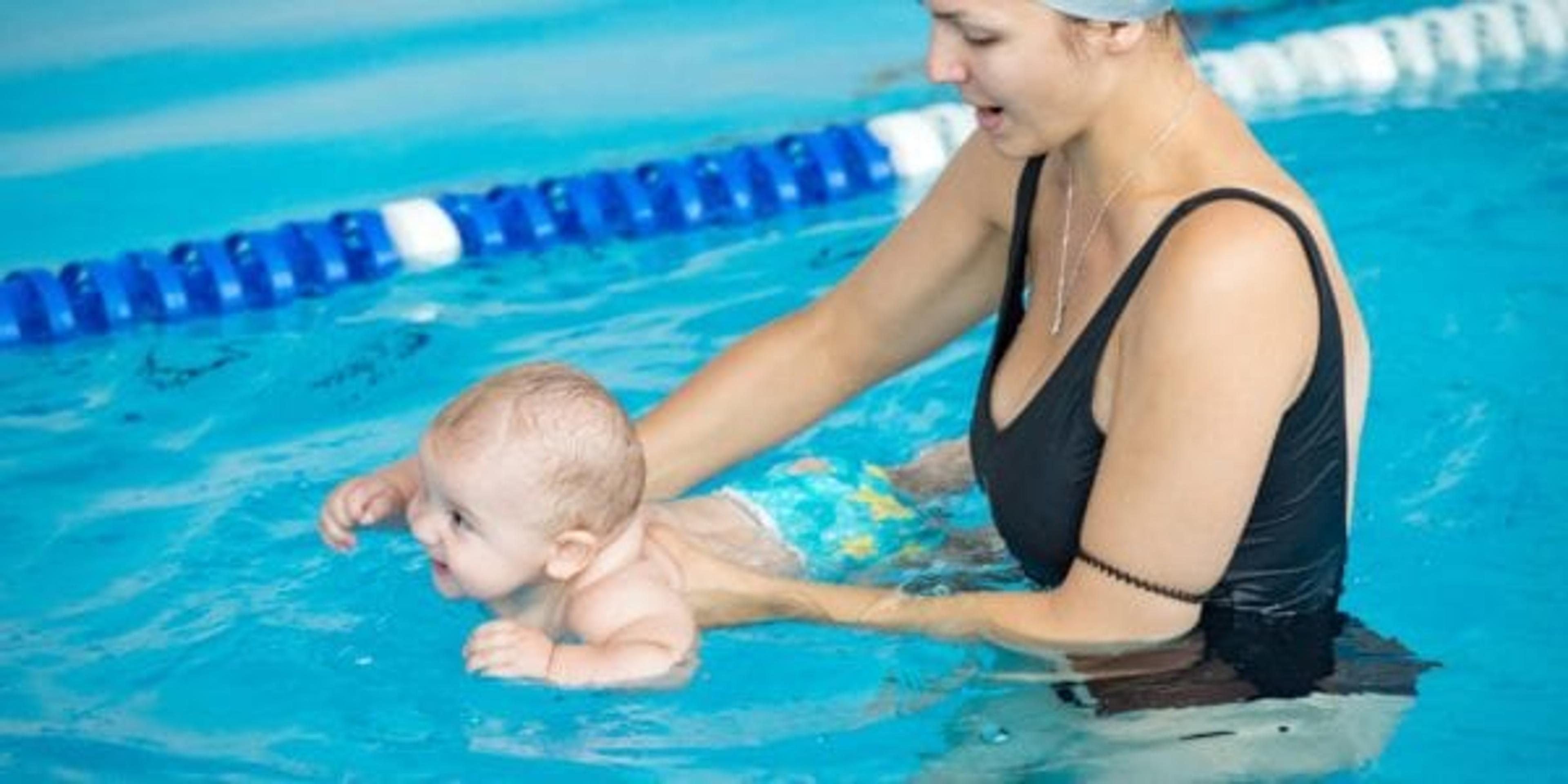Should Your Baby Take Swimming Lessons?

Julie Bitely
| 4 min read

As a parent, it’s hard to not want your children to love the things you do.
For my husband and I, this has manifested itself in many ways with our 20-month-old daughter.
Somehow, all balls in the house are “socca bows” (soccer balls). That’d be my hubby’s doing, as he’s an avid fan of the sport and we often go cheer him on when he plays with his co-ed team. Our daughter does have a mean kick, if I do say so myself.
The girl also loves to read, which is definitely at the top of my favorite-things-to-do list. Just as I say “the end” she’s quick to flip back to the front of her favorite bedtime books. “Again?” How do you say no to a little mind just being shaped and formed? (Most of the time, I don’t.)
One thing my husband and I agree on is our complete ambivalence about swimming. We can both swim and we like the water – our backyard fronts a cute little pond that we love – but as far as swimming as an activity? Meh.
Still, maybe a little because of the pond in the backyard, we decided to sign our daughter up for swim lessons. Her first time in the water went really well. Each week after, has gone progressively downhill.
One of us is always in the water with her and she usually does okay during the warm-up bouncing, but the swimming and submerging exercises we attempt with her are met with screams, howls, and tears.
It’s not pretty, but we’ve noticed that a lot of the other little ones have the same reactions. We don’t expect her to be able to swim on her own once the eight-week class is done, but we’d like to keep trying.
Because of her experience with the class, I decided to do some research on swimming lessons for toddlers. Small studies support the idea that children ages one to four who have had formal swimming instruction may be less likely to drown.
However, the American Academy of Pediatrics (AAP) cautions that knowing how to swim doesn’t “drown-proof” a child and that they should always be closely supervised when near or in the water.
The AAP also offers this specific advice:
- Never leave small children alone in the tub, pool, lake, or any body of water. Because of the risk of drowning in toilets, children also shouldn’t be left alone in the bathroom.
- Stay within an arm’s reach of infants, toddlers, and weak swimmers when you’re in or around water. With older kids and stronger swimmers, it’s still important to not lose your focus as you’re watching them swim.
- Learn CPR for worst-case scenarios.
- Avoid air-filled swimming devices such as arm bands. They can deflate and promote a false sense of security. If you’re at a beach and your child isn’t a strong swimmer, have him or her wear a life jacket.
- Follow proper safety regulations, such as having a proper fence for backyard pools and wearing life jackets when riding in a boat.
- Teach kids to never jump into the water headfirst. Always jump in feet first to gauge the water’s depth and to avoid injury.
- When you go to the beach, try to select sites with lifeguards on duty. However, don’t let up your own watch and vigilance.
Despite the challenges and tears, it feels good knowing we’re hopefully doing something to prepare our daughter for the water. Maybe she’ll grow up to be a swimming enthusiast, laughing at how lame her landlubber parents are. Until then, we’ll do everything we can to help her be comfortable and confident in the pool.
This blog post is part of #HealthyMe, a personalized web experience based on your health and wellness goals. To sign up today, visit https://www.ahealthiermichigan.org/healthyme.
Photo credit: sasapanchenko
You may also like:





